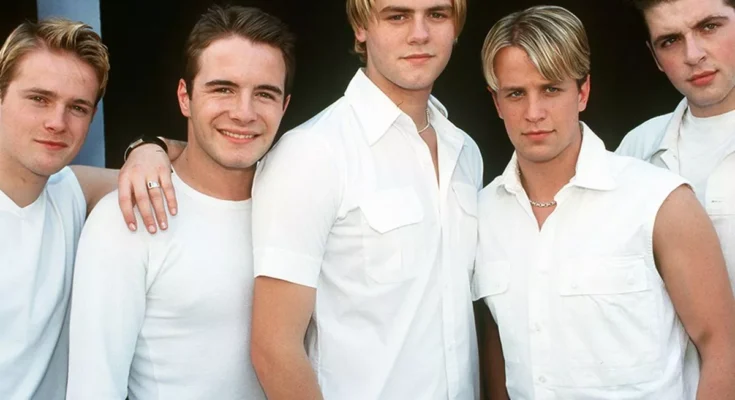Brian McFadden and Keith Duffy have found a new rhythm as Boyzlife, the duo that blends the greatest hits of Westlife and Boyzone with fresh material. Since their collaboration began in 2016, they’ve been bringing nostalgia to audiences across the UK and Ireland. Yet, even now, some fans show up not realizing they’re seeing the real deal on stage. “People in the crowd sometimes do double takes,” laughs Duffy from his home in Dublin. McFadden recounts a show in Scarborough where the venue manager mistook him for a tribute act. “He told me I looked like Brian McFadden. I said, ‘That’s because I am!’” It’s a funny reminder of how surreal fame can be, even years after topping the charts.
Their chemistry is undeniable, forged back in the late ’90s when Westlife toured with Boyzone. Both from Donaghmede, a North Dublin suburb, they shared more than just musical ambition—they bonded over football, golf, and a rebellious streak. While they shy away from the “bad boy” label, they admit to embracing the rockstar lifestyle. Duffy jokes they were “fun-loving criminals,” and McFadden admits they “mixed business with pleasure.” At their peak, both bands were unstoppable, racking up over 80 million albums sold and 21 UK number one singles. With recent documentaries shining a spotlight back on boybands, Boyzlife are enjoying a well-timed wave of renewed interest.
Yet behind the glamour, the boyband era had a darker side. The BBC and Sky documentaries, Boybands Forever and No Matter What, revealed the intense pressure, grueling schedules, and media manipulation many of these young men faced. Duffy recalls fans being shocked at the emotional toll fame took on them. Some, like Boyzone’s Mikey Graham, are still visibly affected. McFadden, however, says he came through it relatively unscathed. “I had a good time,” he says. “I learned from watching other bands lose control.” Still, his decision to leave Westlife in 2004 left a lasting impact—not just on fans, but on his bandmates.
McFadden admits that if he had the perspective he does now, he might not have walked away. At the time, he cited a desire to spend more time with his then-wife, Kerry Katona, and their children. But his departure created friction within the group. He recently addressed it on Nicky Byrne’s podcast, acknowledging that some members never truly understood or accepted his decision. “There’s probably one person in the band who will never forgive me,” he says, though he’s made peace with that. Tensions even spilled into the public when Kian Egan criticized Boyzlife for performing Westlife songs, but McFadden brushed it off, saying, “He’s entitled to his opinion.”
Keith Duffy, meanwhile, found the No Matter What documentary to be both healing and haunting. Recounting the tragic loss of Stephen Gately, who died in 2009 at just 33, was especially emotional. Duffy and Gately were extremely close, and he dedicates a song to his memory at every show. Talking about that time helped him process his grief, but watching it back was more difficult. “I wasn’t sure I wanted the world to see that side of me,” he confesses. The experience remains partially unprocessed, lingering like a ghost from the past.
Both McFadden and Duffy have complicated feelings about former manager Louis Walsh. While acknowledging that Walsh’s tactics—like planting stories in tabloids—played a role in their success, they also agree he could be insensitive, particularly in how he treated Gately. Still, they insist they owe much of their careers to him. McFadden says Walsh’s brashness was simply “Louis being Louis,” and Duffy believes his comments in the documentaries came across as harsher than intended. Despite the backlash, they don’t hold grudges. “We know Louis,” Duffy says. “But I’m not sure he’s owned the consequences of his words.”
Now, with Boyzlife in full swing, the duo are relishing their creative freedom. Their performances span generations, with audiences from age six to ninety singing along. They’re not chasing chart positions anymore; instead, they’re performing on their own terms. “We get to leave out a dozen number ones and still have a full set,” McFadden laughs. More importantly, their friendship has deepened. They argue, they reconcile, and they keep going. “We’ve never been closer,” Duffy says. “It’s real, it’s honest—and we’re having the time of our lives.”



